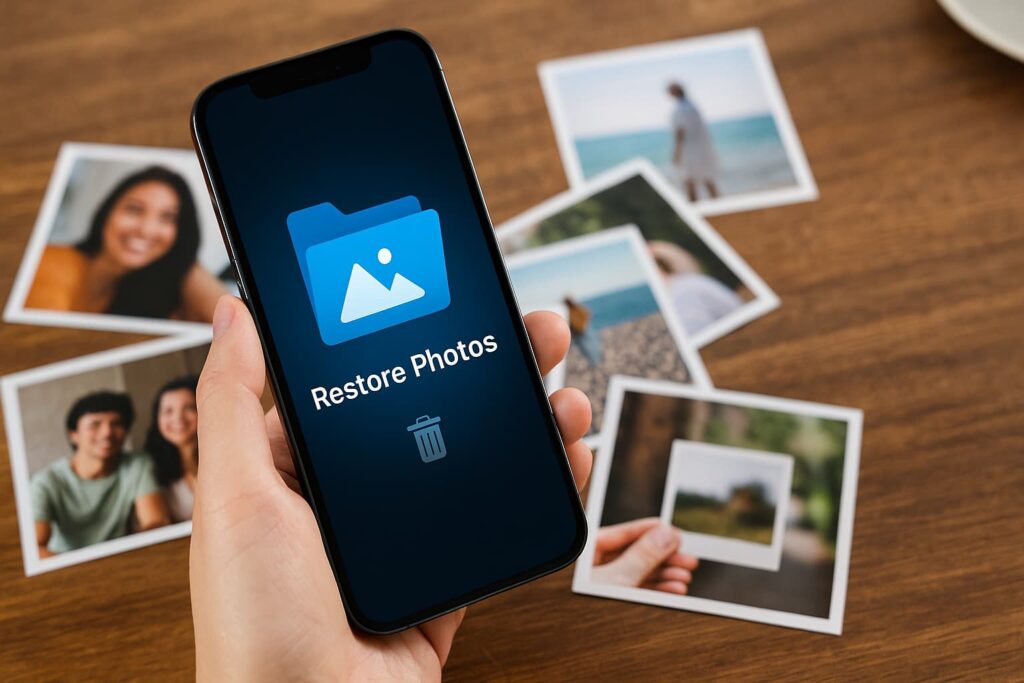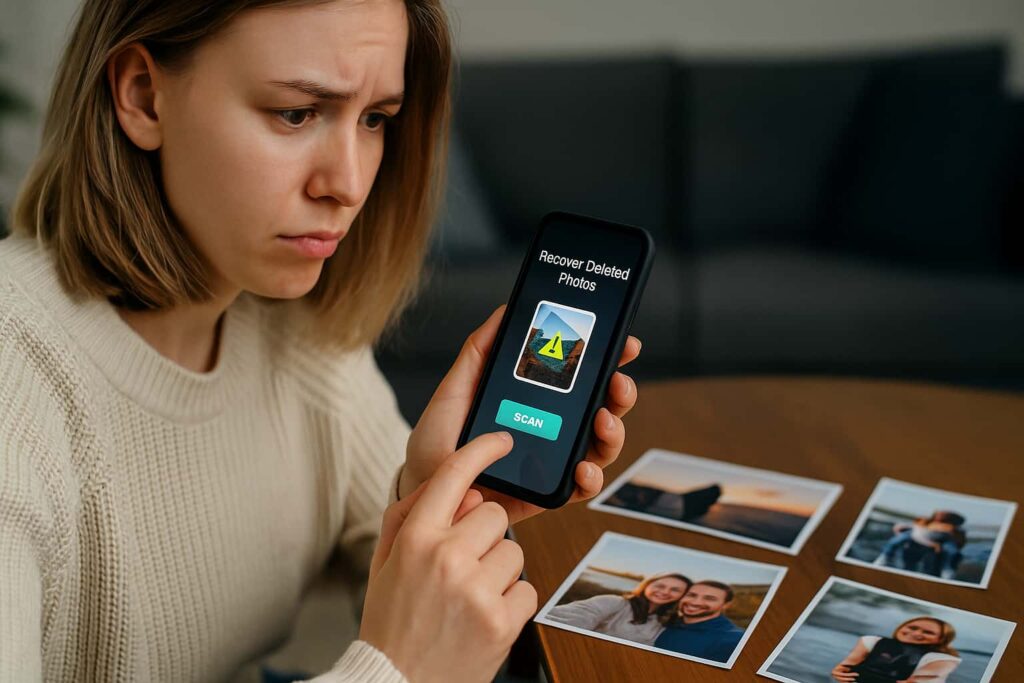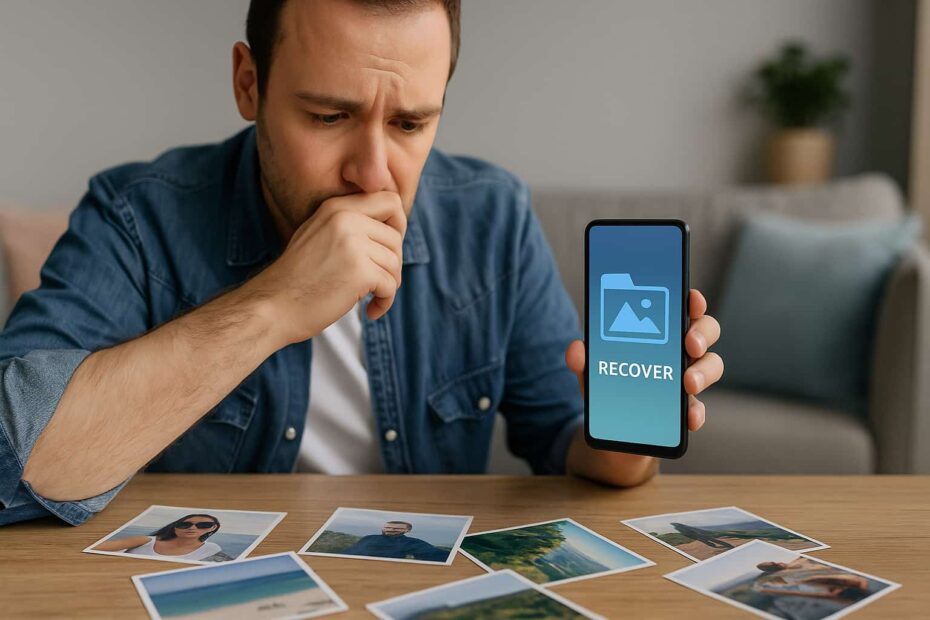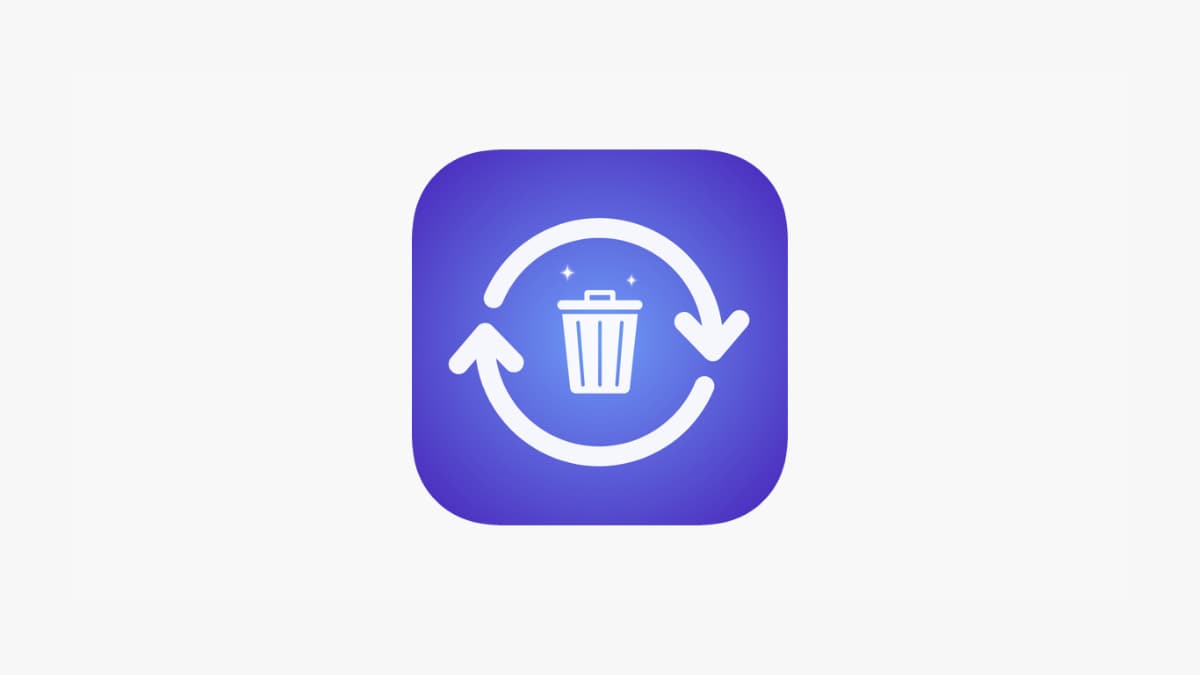Top 5 Recovery Apps

Deleting photos by mistake is a common and frustrating experience. Whether it’s an important photo from work, a special moment with friends, or a family memento, losing these memories can be very stressful.
Fortunately, technology has evolved and today there are powerful applications capable of recovering deleted photos directly from your cell phone.
In this article, you will learn about the 5 best apps for recovering photos, how to use them, whether they are safe and how to avoid losing your images in the future.
1. DiskDigger Photo Recovery
DiskDigger is one of the most popular apps when it comes to recovering deleted files on Android.
It is ideal for those who have recently deleted images or accidentally formatted their memory card. The app is free, but has a Pro version with additional features.
Platform: Android.
Highlights:
- Recovers photos and videos from internal memory and SD card.
- Fast and deep scanning.
- Allows you to preview files before restoring.
2. EaseUS MobiSaver
EaseUS MobiSaver is an efficient solution for those who use Apple devices. It is suitable for both accidental loss and recovery after system failures.
Even in the free version, it is capable of restoring images with a high success rate.
Platform: iOS
Highlights:
- Recovers photos, videos, messages and contacts.
- Works directly from iPhone or via iCloud/iTunes.
- User-friendly and intuitive interface.
3. Dr.Fone – Data Recovery
Dr.Fone is a complete data recovery and management platform. In addition to photo recovery, the app offers solutions for transferring data between devices, backing up and protecting files. The interface is modern and intuitive, ideal for any type of user.
Platform: Android
Highlights:
- Recover photos, messages, call history and app data.
- Support for rooted and non-rooted devices.
- Extra tools for file transfer and backup.
4. Pic Restore: Photo Recovery
If you're looking for something simple and straightforward, Pic Restore is a great option for iPhones. With it, you can recover deleted photos in just a few seconds, even if the trash has already been emptied. The minimalist interface is a plus.
Platform: iOS
Highlights:
- Exclusive focus on photo and video recovery.
- One-click restore.
- Light, fast and effective.
5. All Recovery – File Recovery
This app is a complete option for those who want to recover much more than just photos. With support for multiple file formats, All Recovery stands out for its ability to search for data even in hidden memory partitions.
Platform: Android
Highlights:
- Recovers various file types: photos, videos, documents and audios.
- Does not require root.
- Deep scanning for best results.
Comparison between apps
With so many options available, it can be difficult to choose which app to use to recover your deleted photos.
To make this decision easier, we have prepared a direct comparison between the main apps mentioned in this article.
Here, you can check the features, compatibility and differences of each one side by side — this makes it much easier to find the ideal tool for your type of cell phone and needs.
| App | Platform | Recover Photos | Recover Other Files | Requires Root | Simple Interface |
|---|---|---|---|---|---|
| DiskDigger | Android | Yes | Videos | No | Average |
| EaseUS MobiSaver | iOS | Yes | Videos, messages | No | Yes |
| Dr.Fone | Android | Yes | Apps, calls, videos | Optional | Yes |
| Pic Restore | iOS | Yes | Videos | No | Yes |
| All Recovery | Android | Yes | Videos, audios, docs | No | Average |
Recovering files other than photos
If you think that these apps are only for restoring images from your gallery, you're mistaken. Many of the apps mentioned in this article support the recovery of different types of files, which makes them even more valuable in everyday life.
With them you can recover:
- Videos deleted from the camera, apps, or external storage;
- Text messages and call history, especially in apps like Dr.Fone;
- Audio files, recordings and voice notes;
- Important documents, such as PDFs, spreadsheets, and Word files;
- Third-party application data, including WhatsApp, Facebook and Instagram in some cases.
Applications like Dr.Fone and the All Recovery stand out in this aspect by offering a broader and more detailed scan, allowing the user to recover not only personal files, but also data that impacts the professional use of the device.
If you often store relevant documents or important audio files on your phone, it's worth choosing an app that offers this type of advanced support.
This way, you increase the chances of not losing anything essential in case of accidental deletion or system failures.
Best practices after deleting a photo by mistake

When you realize that you have deleted an important image, it is essential to follow some good practices immediately to increase the chances of recovery:
- Stop using your cell phone to prevent data from being overwritten.
- Don't install new apps or updates.
- Turn on airplane mode, if possible, to minimize system usage.
- Use a reliable recovery app as soon as possible.
- Avoid formatting or resetting the device until recovery is complete.
By following these guidelines, you significantly increase your chances of successfully recovering your files.
Are they safe to use?
Security is an increasing concern for those who install new applications, especially when it comes to apps that access personal files.
Fortunately, the photo recovery apps presented here are considered reliable and have good user reviews on official stores like Google Play Store and App Store.
However, security also depends on how you use these tools. Here are some important recommendations to protect your data:
- Always download from official stores, avoiding APK files from unknown websites.
- Read reviews and ratings from other users to identify potential issues or permission abuse.
- Check the permissions requested by the application and deny any unnecessary requests, such as access to location or contacts, if they are not essential.
- Choose apps that offer encryption or extra layers of protection., such as password backup or biometric authentication.
- Avoid recovering sensitive data on shared devices, such as cell phones borrowed or used by children.
If you follow these best practices, you can use these apps with peace of mind to recover your photos and files, keeping your privacy and digital security up to date.
How to download and install
Downloading and installing a photo recovery app is simple, but it requires paying attention to a few details to ensure that you are using a safe and functional version. See the complete step-by-step guide:
- Open your device's app store (Google Play for Android or App Store for iOS);
- Search by exact app name, such as “DiskDigger” or “EaseUS MobiSaver”;
- Check the developer name and app rating, to make sure you are downloading the official and safe version;
- Click “Install” and wait for the download and automatic installation;
- Open the app and grant the required permissions, such as access to photos, files and storage;
- Follow the on-screen instructions to start the scan and recover the desired files..
It is important to remember that all the apps mentioned in this article have free versions with basic functions.
If you need more advanced features, such as deep recovery or support for multiple file types, you can opt for the premium version, usually accessible via a monthly subscription or one-time payment.
Tips to avoid losing your photos in the future
Losing important photos can be a headache, but fortunately, there are simple ways to avoid this type of situation.
Adopting good organization and backup practices is essential to keep your images safe, both for personal and professional use. See below for some effective strategies:
- Turn on automatic backup: Use services like Google Photos, iCloud, OneDrive, or Amazon Photos to ensure your photos are saved even if something happens to your device.
- Use external storage as a second option: SD cards, USB sticks, and external hard drives are still great ways to keep an extra copy.
- Review what will be deleted by cleaning apps: Many optimization apps delete duplicate or “junk” photos. Make sure to review the files before confirming the deletion.
- Avoid emptying the gallery trash frequently: Keep a “safe” space in case you need to recover something recently deleted.
- Create themed albums for organization: In addition to making it easier to access, this helps you quickly identify important files that shouldn't be deleted.
- Consider using file management apps with password protection: Ideal for sensitive photos or professional use.
Taking these precautions considerably reduces the risk of accidental loss and ensures that your memories are protected, even in the event of failures, device replacement or unintentional deletion.
Conclusion
With the right apps, you can easily recover deleted photos, even in more complex situations.
The apps presented here offer options for both Android and iOS, meeting different needs and user profiles.
Additionally, having features like automatic backup and preventive organization can prevent future headaches.
Want to continue protecting your device and gaining performance? Then check out our article on best apps to clean your cell phone and discover how to delete unnecessary files, free up space and improve your device's performance!

Cell Phone Cleaning Apps
Is your phone slow? Discover apps to clean your phone and free up space quickly. Check out the best options!





